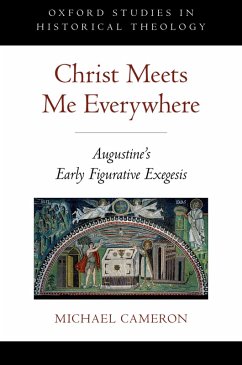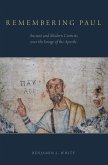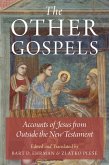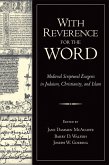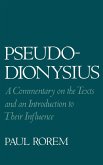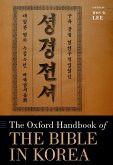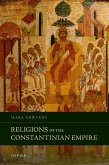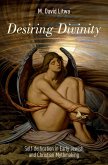Most readers first encounter Augustine's love for Scripture's words in the many biblical allusions of his masterwork, the Confessions. Augustine does not merely quote texts, but in many ways makes Scripture itself tell the story. In his journey from darkness to light, Augustine becomes Adam in the Garden of Eden, the Prodigal Son of Jesus' parable, and the Pauline double personality at once devoted to and rebellious against God's law. Throughout he speaks the words of the Psalms as if he had written them. Crucial to Augustine's self-portrayal is his skill at transposing himself into the texts. He sees their properties and dynamics as his own, and by extension, every believing reader's own. In
Christ Meets Me Everywhere, Michael Cameron argues that Augustine wanted to train readers of Scripture to transpose themselves into the texts in the same way he did, by the same process of figuration that he found at Scripture's core. Augustine discovered this skill by learning to read Scripture as a work of divine rhetoric that mirrors the humility of the human Christ who forms humble readers to ascend its spiritual heights. Tracking Augustine's developing skill in reading Scripture's figures as microcosms of the history of salvation during the first fifteen years of his Christian life, Cameron shows how Christ's self-transposition into Scripture's readers became the key to Augustine's hermeneutics.
Dieser Download kann aus rechtlichen Gründen nur mit Rechnungsadresse in A, B, BG, CY, CZ, D, DK, EW, E, FIN, F, GR, HR, H, IRL, I, LT, L, LR, M, NL, PL, P, R, S, SLO, SK ausgeliefert werden.
Hinweis: Dieser Artikel kann nur an eine deutsche Lieferadresse ausgeliefert werden.

